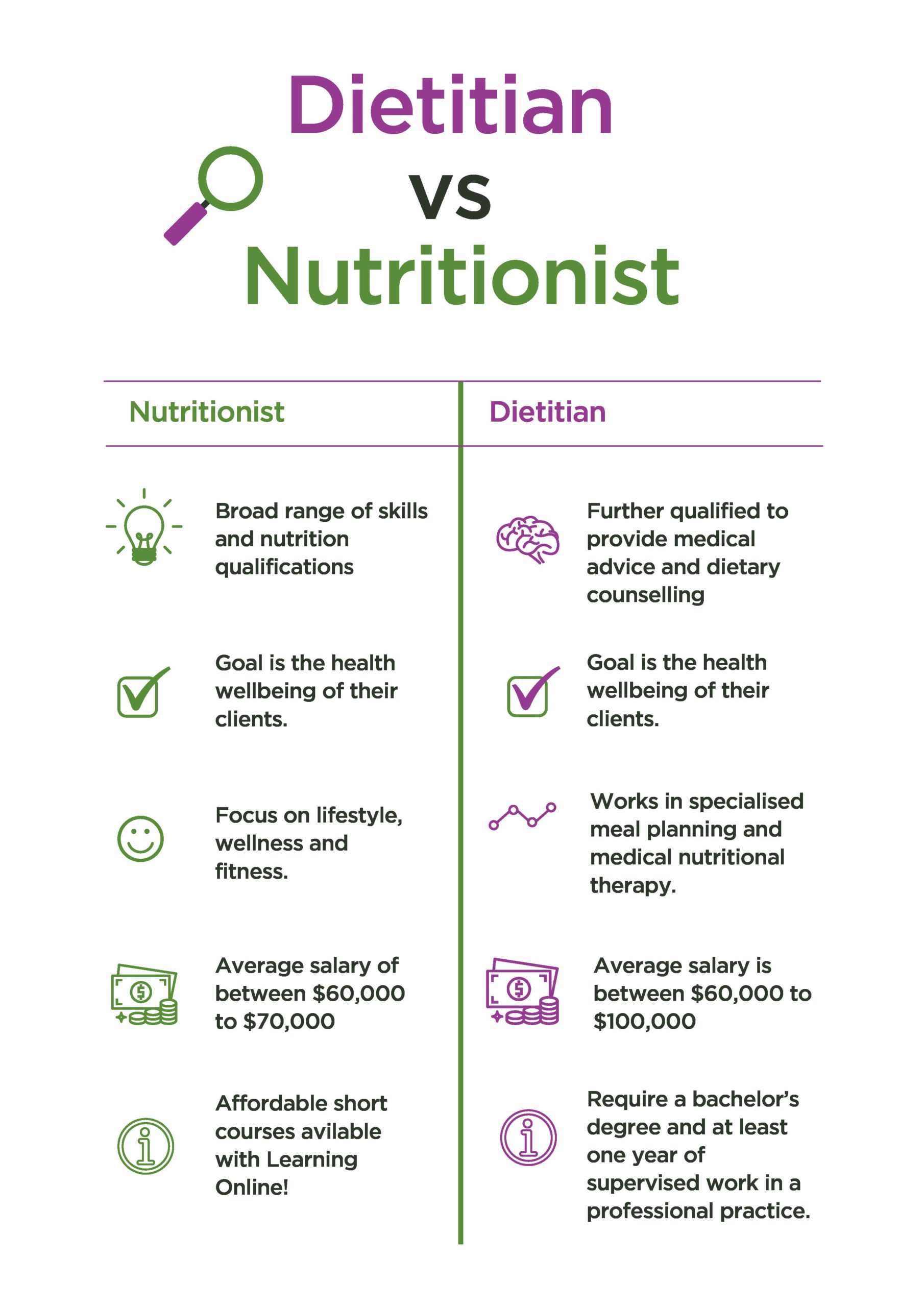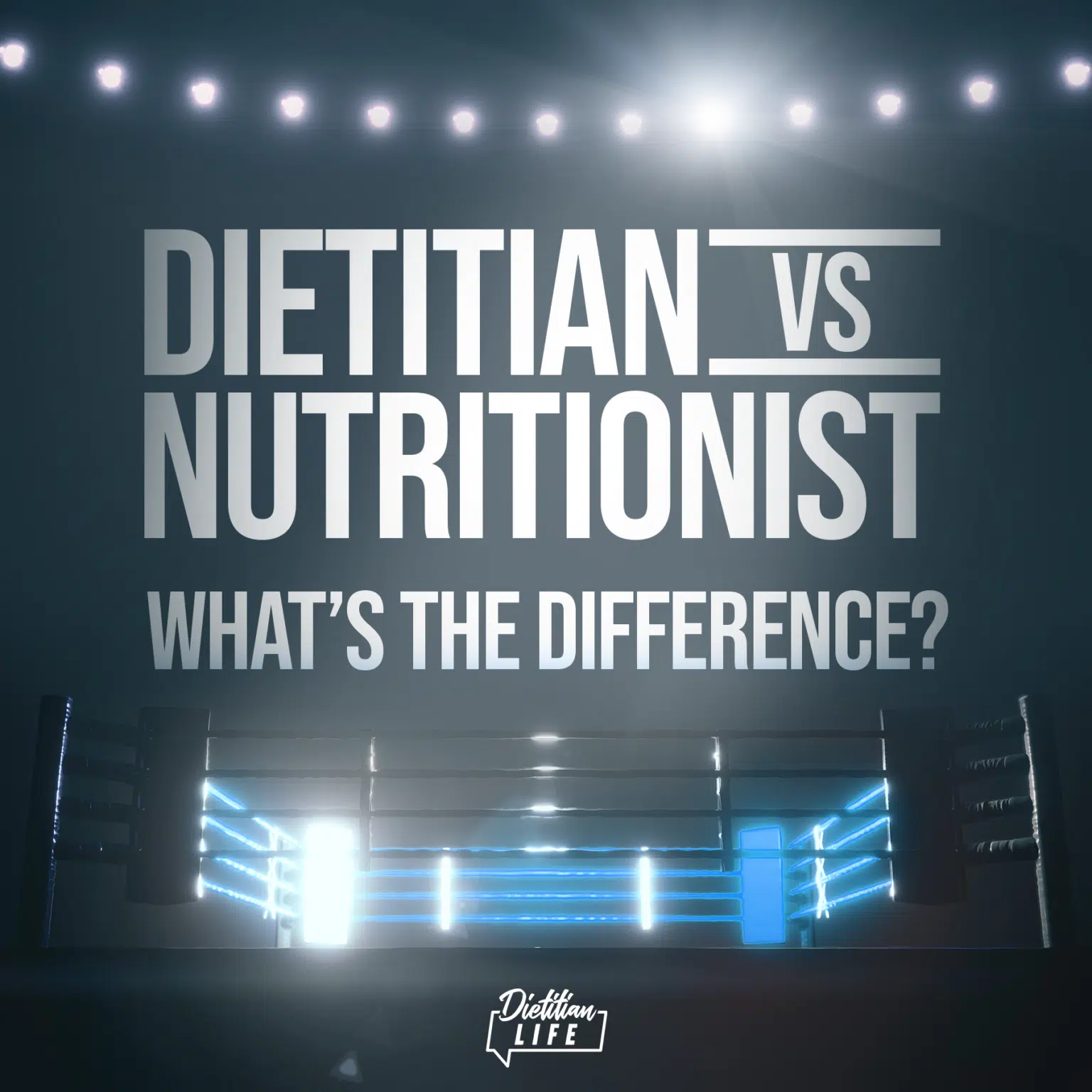All Categories
Featured
Table of Contents
-1
In the United States and numerous various other nations, a dietitian is a board-certified food and nourishment professional. They are highly educated in the area of nourishment and dietetics the science of food, nourishment, and their impact on human health and wellness. With substantial training, dietitians acquire the knowledge to give evidence-based clinical nutrition treatment and nutritional therapy tailored to meet an individual's requirements.
-1To clarify, the qualifications of RD and RDN are compatible. RDN is a much more recent designation. Dietitians can choose which credential they would certainly instead make use of. To make these qualifications dietitians-to-be need to first gain a bachelor's level or equivalent credit scores from an approved program at a college or college. Normally, this requires an undergraduate scientific research level, including courses in biology, microbiology, organic and inorganic chemistry, biochemistry and biology, makeup, and physiology, in addition to more specialized nourishment coursework.
Nutritionist For Athletes (Peron 6168)
-1This enables them to evaluate acute needs, focusing on serious conditions. Inpatient and outpatient dietitians likewise provide nourishment education and learning to individuals with specialized needs, such as those recently out of surgery, in cancer cells treatment, or identified with chronic diseases like diabetes or kidney illness. In the outpatient setting, they provide a lot more in-depth nutritional counseling functioning in the direction of a nutrition-oriented goal.
-1Research study dietitians generally function in study health centers, organizations, or colleges. When dietitians have actually gained their qualifications and are functioning in the field, they can go on to specialize in a specific subcategory, such as pediatrics or sports dietetics.
-1They might furthermore educate in a scholastic or research establishment or discuss nutrition-related topics. Others may work as wellness and nutrition professionals in media or as speakers. Dietitians are qualified to take care of nutrition therapy across a span of intense and chronic problems. The kind of problems they deal with depends most on the setup of their technique.
Registered Nutritionist – Rockingham
-1In lots of states, such as Alaska, Florida, Illinois, Maryland, Massachusetts, and Pennsylvania, RDs and CNSs are given the very same state permit, normally called a Licensed Dietitian Nutritionist (LDN) permit. In states that do not regulate making use of this term, anyone with an interest in diet plan or nutrition might call themselves a nutritionist.
-1Since uncredentialed nutritional experts generally do not have the proficiency and training for medical nutrition therapy and nutrition counseling, following their suggestions could be thought about hazardous (). Prior to consulting a nutritional expert, you might intend to check whether your state regulates who may utilize this title. In the U.S. states that don't control the term, no levels or credentials are called for to be a nutritional expert.

-1
In states that do mandate licensure, the CNS or RD credential might needed. Those with CNS credentials are health and wellness specialists like registered nurses or medical professionals with advanced wellness levels who have actually looked for added coursework, finished supervised method hours, and passed a test managed by the Board for Accreditation of Nutrition Specialists.
-1While a few of these methods might have durable scientific support, others may not. Providing nourishment guidance without the correct understanding and training can be harmful, particularly when counseling those with wellness problems. If you are thinking about seeking advice from a nutritional expert, you might want to ask if they are a CNS or have state licensure or accreditation, or an additional credential.
Registered Dietitian Eating Disorders
-1Numerous states especially control this term. Additionally, nutritionists may pursue a sophisticated CNS accreditation.
-1It can be challenging to assist individuals make genuine, long-term modifications in their lives. Both dietitians and nutritionists give a range of nutrition-based solutions to customers.
-1They must have finished some degree of education and learning in their area. They are likewise required to have completed as much as a year of supervised job, functioning within a directed program at a medical care facility, catering business, or neighborhood body. Dietitians have far higher expectations positioned on their capabilities and degree of professionalism and trust.
-1This means that there is no body that manages their credentials and no specifically rigorous guidelines that nutritionists demand to adhere to in order to be able to practice. Dietitians, on the other hand, are signed up with across the country recognised bodies, such as the Dietitians Organization of Australia. They must follow the National Expertise Standards for Dietitians.
Athletic Performance Nutrition

-1
Nonetheless, you can practice as a nutritional expert without the very same degree of certification as a dietitian. Nutritionist courses can vary in size and quality, with some as brief as 6 weeks and covering much much less material than a dietetics course. Depending upon your education provider, you can gain a significant quantity of understanding through researching an easy nutrition course; nonetheless it is very important to explore the course material prior to starting.
-1This can include attending industry seminars or reviewing market magazines. Nutritional experts, on the various other hand, generally gain their qualifications in order to supplement other qualifications and provide much better recommendations to their clients. Nutritionists can obtain employment in a large range of fields, consisting of public health recommendations, guidance for people, and working with exclusive organisations.
-1Nutritional experts can work with sporting organisations, fitness centers, institutions and encourage media electrical outlets on fundamental terms and right usage of terms. Dietitians can work in most of the very same functions as nutritionists.
Private Dietitian Cost – Rockingham 6168
-1Dietitians usually function with even more medically sensitive customers. These can consist of those with diabetic issues, allergic reactions, obesity, cancer cells and intestinal conditions. Due to the fact that of the high degree of understanding required to provide services to these people, just certified dietitians are permitted to offer care. Several of the higher degree duties with health care establishments can be really satisfying, and pay fairly well.
-1In Australia there is a difference between a dietitian and other nutritional wellness suppliers consisting of nutritional experts. All dietitians are nutritional experts, however nutritional experts without a dietetics certification can't call themselves a dietitian.
-1Dietitians with the Accredited Practising Dietitian (APD) credential dedicate to ongoing training and education throughout their jobs. As a profession, nutritional experts are not regulated in Australia under NASRHP or certified under a single governing body.
Clinical Nutrition Specialist – Peron 6168
-1If you have a persistent health problem and a treatment strategy from your GP, you may have the ability to claim a Medicare refund when you see an APD. Find out more about help with costs when seeing a dietitian. The primary objective of individuals functioning in the occupation of dietetics is personified in this statement: The profession of dietetics contributes to the promotion of health and the avoidance and treatment of health problem by optimizing the nourishment of populations, areas and individuals.
Latest Posts
What's The Best Best Online Fitness Trainer
What Is The Best Registered Nutritionist Company Near Me
Ndis - Perth